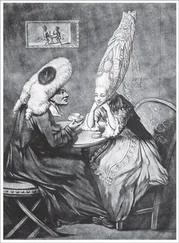Bill Bryson - Notes from a small Island
Здесь есть возможность читать онлайн «Bill Bryson - Notes from a small Island» весь текст электронной книги совершенно бесплатно (целиком полную версию без сокращений). В некоторых случаях можно слушать аудио, скачать через торрент в формате fb2 и присутствует краткое содержание. Жанр: Современная проза, на английском языке. Описание произведения, (предисловие) а так же отзывы посетителей доступны на портале библиотеки ЛибКат.
- Название:Notes from a small Island
- Автор:
- Жанр:
- Год:неизвестен
- ISBN:нет данных
- Рейтинг книги:4 / 5. Голосов: 2
-
Избранное:Добавить в избранное
- Отзывы:
-
Ваша оценка:
- 80
- 1
- 2
- 3
- 4
- 5
Notes from a small Island: краткое содержание, описание и аннотация
Предлагаем к чтению аннотацию, описание, краткое содержание или предисловие (зависит от того, что написал сам автор книги «Notes from a small Island»). Если вы не нашли необходимую информацию о книге — напишите в комментариях, мы постараемся отыскать её.
Notes from a small Island — читать онлайн бесплатно полную книгу (весь текст) целиком
Ниже представлен текст книги, разбитый по страницам. Система сохранения места последней прочитанной страницы, позволяет с удобством читать онлайн бесплатно книгу «Notes from a small Island», без необходимости каждый раз заново искать на чём Вы остановились. Поставьте закладку, и сможете в любой момент перейти на страницу, на которой закончили чтение.
Интервал:
Закладка:
You would never guess that a place as prosperous and decorous as Harrogate could inhabit the same zone of the country as Bradford or Bolton, but of course that is the other thing about the North it has these pockets of immense prosperity, like Harrogate and Ilkley, that are even more decorous and flushed with wealth than their counterparts in the South. Makes it a much more interesting place, if you ask me.
Eventually, with the afternoon fading, I took myself back into the heart of the shopping area, where I scratched my head and, with a kind of panicky terror, realized I didn't have the faintest idea where or when I had agreed to meet my dear missis. I was standing there wearing an expression like Stan Laurel when he turns around to find that the piano he was looking after is rolling down a steep hill with Ollie aboard, legs wriggling, when by a kind of miracle my wife walked up.
'Hello, dear!' she said brightly. 'I must say, I never expected to find you here waiting for me.'
'Oh, for goodness' sake, give me a bit of credit, please. I've been here ages.'
And arm in arm we strode off into the wintry sunset.
CHAPTER EIGHTEEN
I TOOK A TRAIN TO LEEDS AND THEN ANOTHER TO MANCHESTER A long, slow but not unpleasant ride through steepsided dales that looked uncannily like the one I lived in except that these were thickly strewn with old mills and huddled, sootblackened villages. The old mills seemed to come in three types: 1. Derelict with broken windows and TO LET signs. 2. Gone just a grassless open space. 3. Something nonmanufacturing, like a depot for a courier service or a B&Q Centre or similar. I must have passed a hundred of these old factories but not until we were well into the outskirts of Manchester did I see a single one that appeared to be engaged in the manufacture of anything.
I had left home late, so it was four o'clock and getting on for dark by the time I emerged from Piccadilly Station. The streets were shiny with rain, and busy with traffic and hurrying pedestrians, which gave Manchester an attractive bigcity feel. For some totally insane reason, I had booked a room in an expensive hotel, the Piccadilly. My room was on the eleventh floor, but it seemed like about the eightyfifth such were the views. If my wife had had a flare and an inclination to get up on the roof, I could just about have seen her. Manchester seemed enormous a boundless sprawl of dim yellow lights and streets filled with slowmoving traffic.
I played with the TV, confiscated the stationery and spare tablet of soap, and put a pair of trousers in the trouser press at these prices I was determined to extract full value from the experience even though I knew that the trousers would come out with permanent pleats in the oddest places. (Is it me or are these things totally counterproductive?) That done, I went out for a walk and to find a place to eat.
There seems to be a kind of inverse ratio where dinner establishments and I are concerned namely that the more of them there are, the harder it is for me to find one that looks even remotely adequate to my modest needs. What I really wanted was a little Italian place on a sidestreet the kind with checked tablecloths and Chianti bottles with candles and a nice 1950s feel about them. British cities used to abound in these places, but they are deucedly hard to find now. I walked for some distance but the only places I could find were either the kind of national chains with big plastic menus and dismal food or hotel dining rooms where you had to pay .17.95 for three courses of pompous description and overcooked disappointment.
Eventually I ended up in Chinatown, which announces itself to the world with a big colourful arch and then almost immediately loses heart. There was a scattering of restaurants among big office buildings, but I can't say I felt as if I had wandered into a little corner of the Orient. The bigger, betterlooking restaurants were packed, so I ended up going to some upstairs place, where the decor was tatty, the food barely OK and the service totally indifferent. When the bill came, I noticed an extra charge beside a notation marked 'S.C.'
'What's that?' I said to the waitress, who had, I should like to note, been uncommonly surly throughout.
'Suhvice chawge.'
I looked at her in surprise. 'Then why, pray, is there also a space here for a tip?'
She gave a bored, nothingtodowithme shrug.
'That's terrible,' I said. 'You're just tricking people into tipping twice.'
She gave a heavy sigh, as if she had been here before. 'You got complaint? You want see manager?'
The offer was made in a tone that suggested that if I were to see the manager it would be with some of his boys in a back alley. I decided not to press the matter, and instead returned to the streets and had a long, purposeless walk through Manchester's dank and strangely illlit streets I can't remember a darker city. I couldn't say where I went exactly because Manchester's streets always seem curiously indistinguishable to me. I never felt as if I were getting nearer to or farther from anything in particular but just wandering around in a kind of urban limbo.Eventually I ended up beside the great dark bulk of the Arndale Centre (there's that name again). What a monumental mistake that was. I suppose it must be nice, in a place as rainy as Manchester, to be able to shop undercover and if you are going to have these things at all, much better to have them in the city than outside it. But at night it is just twentyfive acres of deadness, a massive impediment to anyone trying to walk through the heart of the city. I could see through the windows that they had tarted it up inside since the last time I had been there and very nice it appeared now, too but outside it was still covered in those awful tiles that make it look like the world's largest gents' lavatory, and indeed as I passed up Cannon Street three young men with closecropped heads and abundantly tattooed arms were using an outside wall for that very purpose. They paid me scant heed, but it suddenly occurred to me that it was getting late and the streets were awfully empty of respectablelooking fellows like me, so I decided to get back to my hotel before some other latenight carousers put me to similar use. I awoke early and hit the drizzly streets determined to form some fixed impression of the city. My problem with Manchester, you see, is that I have no image of it, none at all. Every other great British city has something about it, some central motif, that fixes it in my mind: Newcastle has its bridge, Liverpool has the Liver Buildings and docks, Edinburgh its castle, Glasgow the great sprawl of Kelvingrove Park and the buildings of Charles Rennie Mackintosh, even Birmingham has the Bull Ring (and very welcome it is to it, too). But Manchester to me is a perennial blank an airport with a city attached. Mention Manchester to me and all that swims into my mind is a vague and unfocused impression of Ena Sharpies, L.S. Lowry, Manchester United football club, some plan to introduce trams because they have them in Zurich or some place and they seem to work pretty well there, the Halle Orchestra, the old Manchester Guardian and these rather touching attempts every four years or so to win the bid for the next summer Olympics, usually illustrated with ambitious plans to build a .400million velodrome or a .250million table tennis complex or some other edifice vital to the future of a declining industrial city.
Apart from Ena Sharpies and L.S. Lowry, I couldn't name a single great Mancunian. It's clear from the abundance of statues outside the town hall that Manchester has produced its share of worthies in its time, though it is equally clear from all the frock coats and mutton chops that it has either stopped producing worthies or stopped producing statues. I had a look around them now and didn't recognize a single name.
Читать дальшеИнтервал:
Закладка:
Похожие книги на «Notes from a small Island»
Представляем Вашему вниманию похожие книги на «Notes from a small Island» списком для выбора. Мы отобрали схожую по названию и смыслу литературу в надежде предоставить читателям больше вариантов отыскать новые, интересные, ещё непрочитанные произведения.
Обсуждение, отзывы о книге «Notes from a small Island» и просто собственные мнения читателей. Оставьте ваши комментарии, напишите, что Вы думаете о произведении, его смысле или главных героях. Укажите что конкретно понравилось, а что нет, и почему Вы так считаете.












